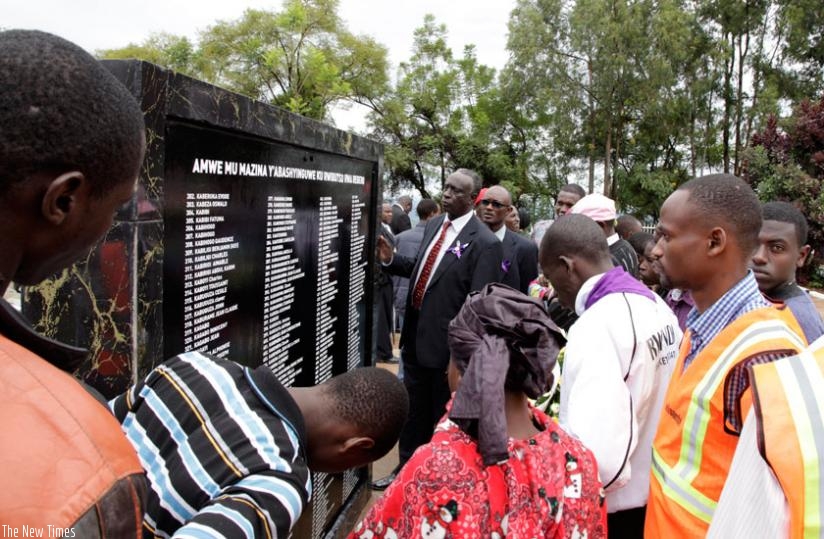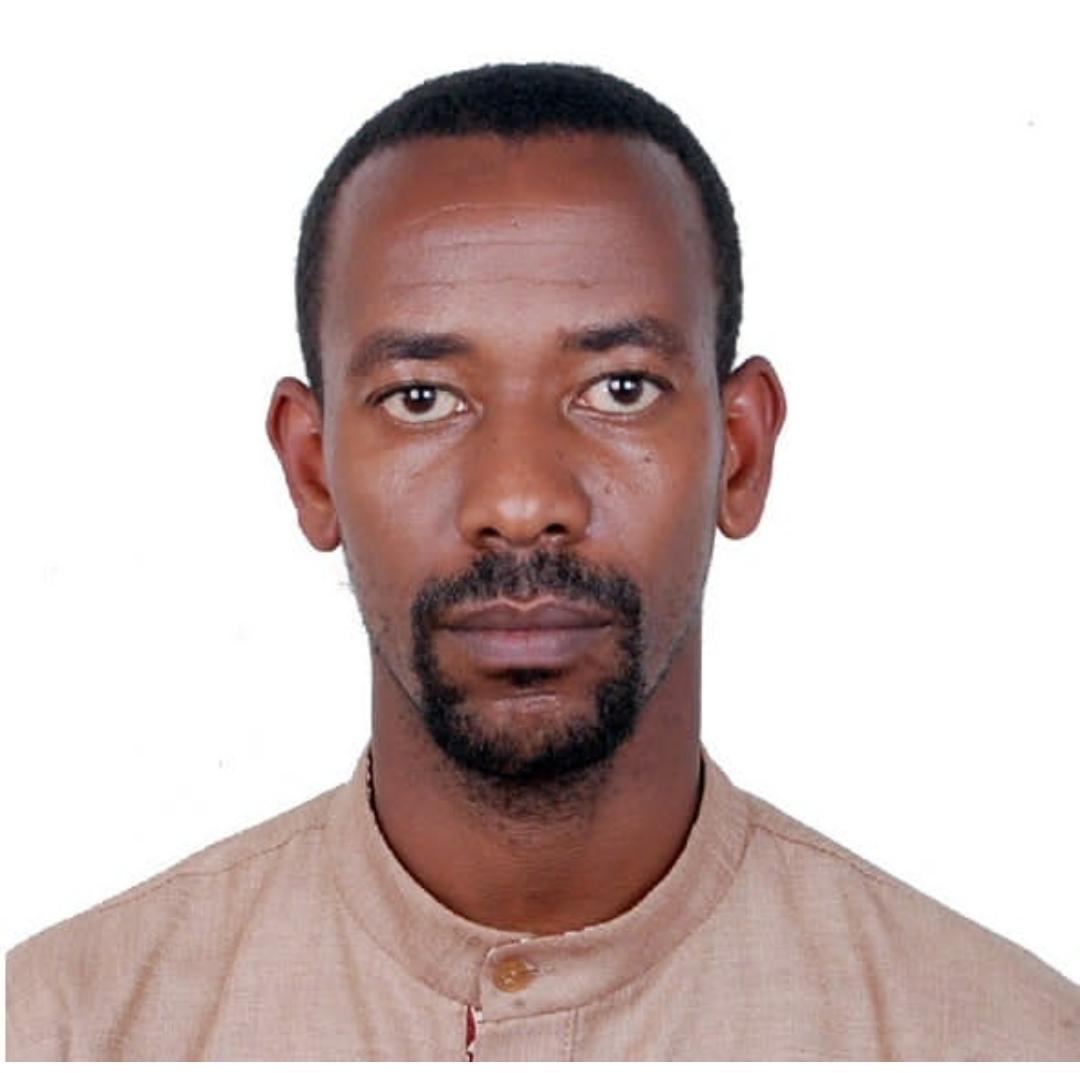Every last day of the national commemoration week is dedicated to paying tribute to politicians killed during the 1994 Genocide against the Tutsi.


Every last day of the national commemoration week is dedicated to paying tribute to politicians killed during the 1994 Genocide against the Tutsi.
The commemoration event involves visiting Rebero hill in Kigali, where the slain politicians were buried alongside other 14,000 victims of the Genocide.
The majority of the 14,000 people were killed and dumped in mass graves at Kigali Central Teaching Hospital and most of them were Tutsi who had sought refuge at the hospital.
Among the politicians to be honoured today include Charles Kayiranga, a member of the Liberal Party, whose relatives and friends say he believed in justice. He was killed alongside his family for his beliefs.
Born in 1949, Kayiranga lived a humble life but served a noble cause, former acquaintances say.
They say that Kayiranga believed in justice, equality, rule of law and human rights.
He had already lost most of his relatives during the 1963 massacre of the Tutsi.
"He was a loving and intelligent man who cared much about his family and job,” said Kayiranga’s sister, Gema Mukandahigwa.
She added that her brother was among the first people killed in the early days of the Genocide.
"On the night of April 7, 1994, militiamen broke into his house in Kimihurura, killed him, his wife, children and our sister who was staying with him,” she said.
Members of the Liberal Party speak so highly of Kayiranga who they say was among the first people to protest the Hutu Power ideology within his party.
"He was in charge of legal affairs within the party and that made him popular. When some people came up with the idea of the formation of Hutu Power wing, Kayiranga protested against it,” said Amb. Joseph Nsengimana, a Liberal Party member who was also a friend to Kayiranga.
He said Kayiranga’s stand against Hutu Power made him a prime target for the extremists who wanted the party divided along ethnic lines.
"He believed in justice, equality, rule of law and fairness. Even outside work, these were the principles of his life.
He was such a great man and a good friend,” Nsengimana said.
Apart from Kayiranga, other politicians whose remains are interred at the Rebero memorial site include Landouard Ndasingwa, aka Lando, former minister-designate Venantie Kabageni, Andre Kameya, Aloys Niyoyita, Augustin Rwayitare and Jean de la Croix Rutaremara, all members of the Liberal Party.
Others are Joseph Kavaruganda, Frederic Nzamurambaho, Felicien Ngango, and Jean Baptiste Mushimiyimana, who were members of Social Democratic Party.
The other is Faustin Rucogoza who was a member of the now disbanded Democratic Movement of Rwanda (MDR).
Lando was killed alongside his family. His memory is partly kept alive by his siblings through the hotel he founded; Hotel Chez Lando in Remera.
Kavaruganda was the head of the Constitutional Court and found himself at crossroads with the genocidal regime because of his dissenting views.
These were among the courageous few who dared the regime that used terror to stiffle opposition.
The reformists called for peace and reconciliation, pushed for talks and condemned the hate ideology that was being propagated by then president Juvenal Habyarimana and his henchmen.
The slain politicians had the capacity to flee the country or even keep mum on the atrocities, but chose to stand firm and condemning evil, eventually laying down their lives for the country, Nsengimana said.
Some were survived by young families whose only memories of their parents are the names engraved on tombstones.
editorial@newtimes.co.rw


